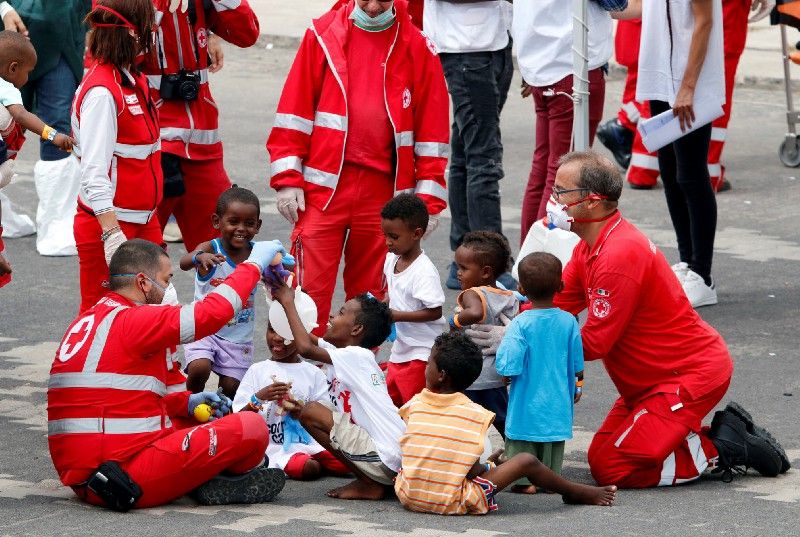Last week, the Italian government closed its ports to a ship carrying hundreds of migrants and refugees — including women and unaccompanied children — from North Africa. After a few days in limbo, Madrid signaled that the boat, named the Aquarius, could dock in Spain. Fellow Signalista Willis Sparksdrops in to guide you through the various facets of this complex story:
The man in Rome who decided to stop the ship is Matteo Salvini, leader of Italy’s right-wing Lega party, which now governs the country alongside the anti-establishment Five Star Movement. As part of that coalition, Salvini, who won millions of votes by pledging to deport hundreds of thousands of people, is Italy’s Interior Minister.
Let’s look at Salvini’s decision from both sides:
Argument 1: shut our doors
- Italy has already accepted hundreds of thousands of migrants and isn’t getting enough support from the EU to manage the strain. Leaving aside Spain’s help in this case, Italian officials say Spain and France have done little else. Germany, Sweden and others have taken many migrants, but other EU states — particularly in Eastern Europe, won’t take any.
- Accepting boatloads of migrants encourages others to risk their lives to reach Europe, exacerbating political problems and creating more humanitarian emergencies at sea.
- Accepting migrants makes “people smuggling” a profitable business.
Argument 2: open our arms
- Migrants are human beings, and they deserve our help.
- Many of these migrants are endangered children who didn’t choose to take the perilous sea voyage themselves.
- Under international law, ships at sea must help any vessels in distress. The country responsible for operations in that area has first responsibility for rescue. The law makes clear that governments don’t get to decide which drowning people to save and which to simply leave offshore.
Although the flow of Middle Eastern and North African migrants by land into Europe has fallen significantly since reaching one million people in 2015 — the Balkans have thrown up barriers, while the EU agreed to help Turkey house and feed migrants who’d otherwise head onwards to Europe — Italy continues to face boatloads of desperate people arriving by sea routes from North Africa.
While Spain stepped in this time around, it won’t be long before another boat arrives at Italy’s increasingly unwelcoming shores and a crisis starts anew.
